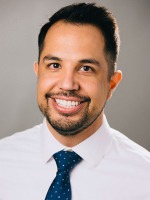What’s New at NIDA
NIDA Loan Repayment Program – Applications due November 17th, 2022
NIDAs Loan Repayment Program (LRP) is accepting applications between September 1st – November 17th. NIDA will repay qualified educational debt up to $50,000 per year during a 2-year period. An applicant must be a citizen or permanent resident of the U.S., have a doctoral-level degree (e.g., M.D., Ph.D., Pharm.D., Psy.D., D.O., D.D.S., D.M.D., D.P.M., D.C., N.D., O.D., D.V.M.), and have educational debt equal to at least 20% of base salary. Eligible applicants engage 50% effort researching in one of the following areas:
- Clinical – Patient-oriented research conducted with human subjects including epidemiological, outcomes, and health services research.
- Pediatric – research that is directly related to diseases, disorders, and other conditions in children, including studies related to substance use and abuse in children and adolescents.
- Health Disparities Research – research that addresses health disparities among underrepresented populations and supports health equality research across the life span that considers the impact of age, sex, gender, race, ethnicity, culture, and socioeconomic status on substance use and addiction.
- LRP REACH – NIDA will be accepting LRP REACH applications for each of the following categories:
- Forensic Pathologists and Medical Examiners working in the field of drug overdose
- Addiction scientists working in drug development
- Data Scientists/Computational Neuroscientists focusing on addiction
If you plan to apply to the LRP, or have eligibility questions, please contact Dr. Lindsey Friend (NIDA_LRP@nida.nih.gov).
Congratulations to NIDA Diversity Supplement FY2022 Awardees!
We would like to congratulate the awardees of NIDA Diversity Supplements for Fiscal Year 2022! The goal of the Diversity Supplement is to help bridge post baccalaureates, graduate/medical students, postdoctoral students, and ESIs from underrepresented backgrounds into independent research careers in substance use and addiction. See below for a full list of FY2022 Diversity Supplement awardees.
- FY2022 Diversity Supplement Awardees
Congratulations to the Fiscal Year 2022 NIDA Diversity Supplement Awardees and Candidates!
This information was compiled from the NIH RePORTER and the NIDA Office of Diversity and Health Disparities.
Grant Number PI Institution Receiving the Supplement to Promote Diversity Project Title 3R01DA06653-04S1 Alexander Bennett New York University Overdose Risk Management and Compensation in the Era of Naloxone 3R01DA046852-04S1 Gurudutt Pendyala University of Nebraska Medical Center Extracellular vesicles, meth relapse and sex differences 3R01DA022340-12S1 Joseph Cheer University of Maryland Baltimore Endogenous cannabinoid control of reward substrates 3R01DA047743-03S1 Julie Blendy University of Pennsylvania Neonatal Opioid Exposure and Withdrawal: Molecular and Behavioral Consequences 3R01DA047441-03S1 Marcelo Andres Wood University of California, Irvine Epigenetic mechanisms in the medial habenula governing drug-seeking behavior 3R01DA051831-03S1 Christie Fowler University of California, Irvine Impact of THC on Extracellular Vesicle Signaling 3R00DA048085-03S1 Khaled Moussawi University of Pittsburgh at Pittsburgh TMS effects on circuit plasticity and drug seeking in mice 3R01DA047855-04S1 Christopher McCurdy University of Florida Kratom alkaloids: in vitro and in vivo pharmacological mechanisms 3P50DA048756-04S1 Leslie Diane Leve University of Oregon Prevention Research Center: Parenting Among Women Who Are Opioid Users 3R01DA050542-04S1 Sabita Roy University of Miami School of Medicine Role of Gut Microbiome- Brain Axis in Modulating CNS Inflammasomes in the Neuropathology Produced by Opioid Exposure and HIV 3R01DA049924-03S1 Meaghan Creed Washington University Dissecting the role of ventral pallidal projections to nucleus accumbens in reward processing 3R01DA052859-03S1 Dionna Williams Johns Hopkins University Cannabidiol and Macrophage Chronic Inflammation in a Virally Suppressed Rhesus Macaque Model 3R15DA041657-02S1 Aukje Lamonica Southern Connecticut State University SOS PrOMPT: Suburban Opioid Study- Providing for Opioid-using Mothers and Pregnant Women who need Treatment 3R00DA042934-05S1 Elizabeth West Rowan University School/Osteopathic Medicine B1 noradrenergic blockade in early withdrawal to reduce cocaine induced behavioral flexibility deficit 3R01DA035443-09S1 Kate Wassum University of California, Los Angeles Amygdala-cortical Circuitry in Reward Encoding, Expectation, and Decision Making 3R01DA052340-02S1 John Michael Streicher University of Arizona Development of Hsp90 Isoform- Selective Inhibitors as a Novel Opioid Dose-Reduction Therapy 3R01DA048036-05S1 Brock Grill Seattle Children’s Hospital Molecular genetic mechanisms of opioid receptor signaling 3P30DA054557-02S1 Alan David Levine Case Western Reserve University CWRU Center for Excellence on the Impact of Substance Use on HIV 3R01DA046410-04S1 Brian August Anderson Texas A&M University The Control of Attention and Learning from Physical Effort 3R01DA039912-08S1 Melissa Walls Johns Hopkins University Towards understanding the influence of greenspace and blue-space exposure mediated by culture-based human-nature interaction on onset of substance use among Indigenous youth 3U01DA041120-08S1 Monica Luciana University of Minnesota Adolescent Substance Use Initiation: Disentangling neurocognitive risks from consequences using longitudinal and genetically-informed methods 3R01DA052883-02S1 Tristen Inagaki San Diego State University Understanding how opioids affect the experiential and neural signatures of feelings of social connection with close others 3R24DA051988-03S1 John Kelly & Bettina Hoeppner Massachusetts General Hospital Advancing the science on recovery community centers to support persons treated with medications for opioid use disorder 3U01DA041148-08S1 Bonnie Nagel Oregon Health & Science University 6/21 ABCD-USA Consortium: Research Project Site at OHSU 3R01DA048827-03S1 Katarina Guttmannova University of Washington Promoting health by understanding the dynamic interplay between internalizing symptoms and substance use among Latinx youth in rural and small-town communities in the United States 3R01DA043678-05S1 Karen Grewen University of North Carolina Chapel Hill Effects of Prenatal Opiates on Infant Brain and Neurobehavioral Development 3DP1DA051608-03S1 Lucas Sjulson Albert Einstein College of Medicine Uncovering links between neuronal transcriptomic and functional profiles in opioid addiction 3U01DA051037-03S1 James Bjork Virginia Commonwealth University Examining Brain Development, Context, and Culture as Mediators and Moderators of the Relation between Adverse Childhood Experiences (ACEs) and Substance (Ab)use 3R01DA053385-01A1S1 Su Guo University of California, San Francisco Role of endocannabinoid signaling in a preference/aversion circuitry 3R01DA044980-04S1 Michael Saddoris University of Colorado Reversing Cocaine-induced Impairments in the NAc with Controllable Stressors 3R01DA049644-03S2 Steffanie Strathdee University of California, San Diego Ethno-epidemiology of HCV, HIV and Overdose associated with Drug Markets and Drug Tourism 3R01DA051321-03S1 Elizabeth Connick University of Arizona Using Sleep Health to Optimize Smoking Cessation Treatment Response in HIV-Positive Adults 3DP2DA051907-01S1 Jacqueline Barker Drexel University Integrating preclinical models to develop converging mechanistic data in co-occuring HIV and substance use 3U01DA041048-08S1 Elizabeth Sowell Children’s Hospital of Los Angeles 8/21 ABCD-USA Consortium: Research Project Site at CHLA 3R01DA036612-09S1 Thomas Hnasko University of California, San Diego Role of novel VTA neurons in addiction-related behaviors 3R01DA054589-02S1 Antonieta Lavin Medical University of South Carolina Methamphetamine Effects on Prefrontal Cortical PV+ Interneurons and Resulting Cognitive Deficits 3U01OD033241-01S1 Chyrell Denise Bellamy Yale University Culturally-responsive community-driven substance use recovery for Black and Latinx populations 3R01DA051908-03S1 Eric Otto Johnson Research Triangle Institute Gene Network Identification and Integration (GNetii) Approach to Understanding the Biology Underlying HIV and Drug Abuse If you are interested in applying for a NIDA Diversity Supplement please contact Dr. Angela Holmes at angela.holmes2@nih.gov.
The NIDA ORTDD is proud to share that the first ever virtual NIH Diversity Supplement Professional Development and Networking Workshop that took place on August 30-31, 2022, and brought together over 20 institutes, centers, and organizations to host more than 600 diversity scholars at the undergraduate, post-baccalaureate, pre-doctoral, post-doctoral and early investigator/faculty career levels.
The two-day workshop provided scholars the opportunity to share their research and get feedback during poster sessions, hear about NIH Diversity Equity Inclusion Accessibility (DEIA) efforts, gain knowledge about NIH funding and training opportunities specific for their career stages and beyond, receive information about the NIH grant and review process, learn how to choose a mentor, network with NIH staff and other scholars, hear from past scholars about their journey to becoming an independent investigator, and learn about other scientific career paths.
The workshop was a fantastic event and was well received by NIH colleagues, scholars, and principal investigators. We heard from many scholars that the information provided during the ‘Meet with a PO’ session was beneficial and invaluable to them and for some this was the first time they had ever spoken to an NIH program officer! Moreover, the talks and presentations were inspiring and informative. See the workshop agenda for more details. Finally, participants really enjoyed the ability to network within the Gather Town platform as it so closely mimicked an in-person meeting! We would like to thank all the scholars, NIH staff, presenters, and meeting organizers for their help with making this workshop a huge success! To learn more about the NIDA Diversity Supplement Program and how to apply, please contact Dr. Angela Holmes or visit the NIDA Diversity Supplement Program webpage.
If you are interested in applying for a NIDA Diversity Supplement, please contact Dr. Angela Holmes at angela.holmes2@nih.gov.
NIDA Diversity Scholars Network Program, Mock Grant Review
Congratulations to the 2022 NIDA Diversity Scholars Network (NDSN) Program participants! This year, 10 scholars were selected to participate in NIDA’s comprehensive grant-writing program, NDSN. The NDSN program is a 3-part program aimed at increasing the funding success of early career investigators conducting substance use and addiction research.
Upon acceptance into the program, each scholar was matched with a NIDA Program Officer (PO) and Coach (external addiction scientist conducting similar research) to work on their grant application they plan to submit to NIH shortly after participating in the program. The Part I meeting included a Meet & Greet and a presentation from Dr. Albert Avila on funding opportunities. The Part II meeting featured a presentation from Dr. Avila on grant writing strategies and the NIH review process. It also included a presentation from the Center for Scientific Review’s (CSR), Dr. Aruna Behera, on the Early Career Reviewer (ECR) program. The meeting concluded with a Q&A discussion with a past NDSN scholar: Dr. Tamara Taggart. Scholars were able to hear about lessons learned throughout Dr. Taggart’s career journey to becoming an independent NIDA investigator.
The highly anticipated Part III was a two-day meeting, starting with the Mock Review study section meeting and ending with several different career development presentations and talks. Scholars were able to listen to their grant applications be reviewed in real time and had the opportunity to engage in an informal discussion with reviewers at the end of meeting. Part III concluded with an inspiring presentation from past NDSN scholar Dr. Yihong Zhao, presentations on secondary data analysis from NIDA staff Drs. Carmen Rosa, Abigail Matthews, and Marsha Lopez and an encouraging talk from Dr. Avila on resilience. We would like to commend each of the scholars on their hard work throughout the year and thank all the NIDA POs, Coaches, and Reviewers for their time and support for this program!
The 2023 NDSN application will open November 21, 2022. Apply on the NIDA ORTDD website and contact Isabela Lopes (Isabela.Lopes@nih.gov) with any questions.
| Meet our 2022 NDSN Scholars | |
|---|---|
Image

Kathleen Crum, Ph.D. | Image

Priscila Dib Goncalves, Ph.D. |
Image

David Hoskins, PhyD, MAS | Image

Dr. Joyonna Gamble-George, Ph.D. |
Image

Tamara Hughes, PharmD, Ph.D. | Image

Rachel Hoopsick, Ph.D., MS, MPH, MCHES |
Image

Deena Kemp, Ph.D. | Image

Verlin Joseph, Ph.D. |
Image

Joy Scheidell, Ph.D., MPH | Image

Raymond Moody, Ph.D. |
Thank you 2022 NDSN Coaches!
Linda Chang, Ph.D.
Professor, Diagnostic Radiology and Nuclear Medicine
University of Maryland College Park
Tara Chaplin, Ph.D.
Associate Professor of Psychology
George Mason University
Katherine Keyes, Ph.D.
Professor of Epidemiology
Columbia University Mailman School of Public Health
Elizabeth Klein, Ph.D., MPH
Chair and Professor, Health Behavior and Promotion
The Ohio State University
Krista Lisdahl, Ph.D.
Professor of Psychology
University of Wisconsin Milwaukee
Allison Ober, Ph.D.
Health Policy and Behavioral Science Researcher
RAND Corporation
Carrie Oser, Ph.D.
Endowed DiSilvestro Professor of Sociology
University of Kentucky
Seth Prins, Ph.D.
Assistant Professor of Epidemiology and Sociomedical Sciences
Columbia University Mailman School of Public Health
Sandra Springer, M.D.
Associate Professor of Medicine
Department of Internal Medicine
Yale School of Medicine
Emily Williams, Ph.D.
Professor, Health Systems and Population Health
University of Washington
Thank you 2022 NDSN Reviewers!
Kevin Bath, Ph.D.
Associate Professor of Clinical Medical Psychology
Columbia University, College of Physicians & Surgeons
Chyrell Bellamy, MSW, Ph.D.
Professor of Psychiatry
Yale School of Medicine
Felicia Browne
Senior Research Social Epidemiologist
Research Triangle Institute (RTI) International
Joseph Cheer
Professor, Anatomy and Neurobiology
University of Maryland, School of Medicine
Kelly Dunn, Ph.D., MBA, MS
Associate Professor of Psychiatry and Behavioral Sciences
Johns Hopkins Medicine
Katarina Guttmann, Ph.D.
Associate Professor
Department of Psychiatry and Behavioral Sciences
Brooks King-Casas
Associate Professor
Department of Psychology
Virginia Tech
Seth Noar, Ph.D.
Professor
UNC-Chapel Hill School of Journalism and Media
Danielle Ompad
Associate Dean for Education
Professor of Epidemiology
New York University School of Global Public Health
Ashli Sheidow, Ph.D.
Science Director
Oregon Social Learning Center
Karin Tobin
Associate Professor
Health, Behavior and Society
Johns Hopkins Bloomberg School of Public Health
2023 Summer Research Internship Program – Mentor Request
The 2023 NIDA summer research internship program is looking for principal investigators to register to mentor interns for the upcoming program. The online registration can be found at https://nidaextshare.nida.nih.gov/SRP/PI/SitePages/Application.aspx. The NIDA Summer Research Internship Program supports all students with a focus on increasing underrepresented populations in drug abuse research. Through this program, undergraduates aged 18 and older are introduced to the field of substance use and addiction research by participating in research internships with NIDA's distinguished scientists at universities across the United States. Students work with leading scientists for eight weeks during the summer. The internship may include laboratory experiments, data collection, data analysis, formal courses, participation in lab meetings, patient interviews, manuscript preparation, and literature reviews. In addition, it is expected that each intern will deliver a formal presentation on their research project at the end of the internship. Below is a interview between a mentor and her intern about their experience during this year’s NIDA Summer Research Internship Program.
New HIV Seminar Series
NIDA is pleased to announce our new HIV Seminar Series with the first presentation on Wednesday, October 26th, 2022 from 1-2pm. Our guest speaker is Natasha Martin, DPHIL/PHD, from the Department of Medicine, Division of Infectious Diseases and Global Public Health at the University of California, San Diego. Dr. Martin will be speaking on “Addressing structural drivers of the syndemics on injecting drug use, HIV, HCV, and overdose: insights from modeling population impact.”
Career Development Spotlight: Sabrina Assoumou and Matthew Lemansky
2022 NIDA Summer Research Internship Program Mentor/Intern

Sabrina A. Assoumou, MD MPH, is the inaugural Louis W. Sullivan, MD, Professor of Medicine, and Assistant Professor of Medicine at Boston University School of Medicine. Dr. Assoumou graduated magna cum laude from Williams College and obtained her medical degree from the University of Rochester School of Medicine and Dentistry. She then completed a combined Internal Medicine/ Pediatrics residency at Brown University and an Infectious Diseases Fellowship at Harvard University’s Beth Israel Deaconess Medical Center where she was awarded the Finland Award for Research Excellence. She also earned a Master of Public Health at the Harvard T.H. Chan School of Public Health. Dr. Assoumou received an Excellence in Teaching Hospital-Based Faculty Award at BMC in 2017. She is also an attending physician in the section of Infectious Diseases at Boston Medical Center. She is a clinician-investigator who cares for patients with human immunodeficiency virus (HIV) at the BUSM/BMC’s Centers for Infectious Diseases. Her research focuses on medical complications of substance use including HIV and Hepatitis C virus (HCV). Below are her answers to some questions we asked about her experience during this year’s summer research internship.
- What made you decide to register to become a mentor for the 2022 summer program?
I was eager to join as a NIDA summer program mentor because I have greatly benefited from all the programs and support offered by NIDA. I view participation in the program as one of the ways that I could pay it forward and participate in the training of the next generation of researchers in the substance use field. Throughout my career I have been fortunate to have mentors who provided helpful guidance. I have continued to use their advice as I navigate a career in academic medicine. When my turn came to be a mentor, I always remember the lessons that I learned from my mentoring network, and I try to share those lessons as I guide others on their journey as substance use researchers. - What was the research that you had planned for the intern?
One of my colleagues always underscores the importance of having “shovel-ready research projects” for students. I use that approach for summer intern projects. I would like for students/interns to participate in an ongoing project, and we work together to carve out an aspect of the project that would be meaningful for a summer program. My goal is to ensure that individuals who work with me have a product in the form of either a presentation at a conference or a manuscript submitted for publication in a scholarly journal. We also work on building a strong foundation for important skills necessary for a successful research career such as performing a thorough literature review and presenting to an audience. - Was the intern very excited by the work that was given to him?
Matthew Lemansky’s enthusiasm is one of his best assets. His enthusiasm about our research program and his specific project always encouraged me to expose him to as many aspects of the project research as possible. He was always eager to learn more and worked hard to move the project forward. He was always very responsive and put a lot of effort into reaching the milestones that we have developed for the project. - Are they plans to register for the 2023 summer program?
Working as a mentor on the NIDA summer program was a great experience. Seeing the final presentations from all the interns made me even more excited about the program. It was so great to hear about all the different projects and see what students had accomplished during the summer. - Overall, how was your summer program mentor experience?
Overall, I had a great experience. I was fortunate to be paired with Matthew Lemansky’s who was a thoughtful and hardworking intern. His enthusiasm made me even more excited about the project and we look forward to submitting the product of his summer project for publication in a scholarly journal.

Matthew Lemansky: is a Senior student at Emmanuel College where he is majoring in Psychology with a minor is Sociology & Global Public Health. He is an impressive student where he made the Dean’s list 5 out of 5 semesters. During his experience as a Mental Health Specialist at McLean Hospital in the admissions unit lead him to a desire to learn more about substance use and addictions research. His career goals are to earn a PhD in Clinical Psychology research PTSD in healthcare workers. He’s interested in the rates of substance use amongst healthcare workers due to the pandemic. Below are his replies from the questions that we asked him about his internship experience.
- What made you decide to sign up for the 2022 summer program?
When I signed up for the program, I have worked at a psychiatric hospital for about a year and have been constantly exposed to this population. I saw the 2022 summer program as an opportunity to educate myself about people who have substance use disorders to one day better their care! - What in the site description led you to wanting to pick Sabrina’s lab?
I loved that she was conducting research in harm reduction through her NIH-funded Comprehensive HIV, HCV, OUD Response to the Unaddressed Syndemic (CHORUS) program. - What was your impression of Sabrina’s lab and the work that was given to you?
The overall impression that I got from Dr. Assoumou’s lab would be a lot of work, but it would be rewarding at the end of the day (which it was!). Along with her ongoing project, Dr. Assoumou also wanted me to focus on my own project as well with hopes of it becoming published! - Did working in Sabrina’s lab pique your interest in working in the substance use field?
Absolutely! It made me want to also pursue harm reduction research in a potential master’s in public health (MPH)! In a shorter-term goal, it inspired me to get a job at an alcohol and drug detox center within the hospital I currently work at. - Overall, how was your summer program intern experience?
I would say overall it was life changing! I was able to build up on research skills needed for graduate school and be a part of research that was much bigger than myself. It was an amazing opportunity and would highly recommend it to anyone interested in substance use research!
Congratulations to all Fellowship Grants (F32) Awardees in Fiscal Year 2022!
We would like to congratulate the awardees of NIDA Research Grants (R01) awards in Fiscal Year 2022! The goal of these programs is to provide individual research training opportunities (including international) to trainees at the undergraduate, graduate, and postdoctoral levels. See below for a full list of active NIDA F32 award recipients from NIH RePORTER.
For more information on NIDA Funding Opportunities, visit the Funding Opportunities at NIDA webpage. For a full list of NIH training, fellowship, career development, and research education funding opportunities including parent announcements, please visit and subscribe to the NIH Guide to Grants and Funding.
Program Updates
Below are a just a few notices that NIDA participates in:
We are excited to share a new and groundbreaking funding opportunity, the “NCCIH, NEI, NIAAA, NIDA, NIMH, NINR, and NINDS Research Opportunities for New and "At-Risk" Investigators to Promote Workforce Diversity (R01 Clinical Trial Optional).” This program is intended to support New and At-Risk Investigators from diverse backgrounds, including those from groups underrepresented in the health-related sciences proposing research within the mission of the participating NIH Institutes. An investigator is considered a New Investigator (NI) if they have not competed successfully for substantial, NIH independent funding from NIH. An investigator is considered an At-Risk Investigator if they have had prior support as a Principal Investigator on a substantial independent research award and, unless successful in securing a substantial research grant award in the current fiscal year, will have no substantial research grant funding in the following fiscal year.
Applications that fall within the scientific mission of NIDA will be considered for funding.
View NIDA's Strategic Plan.
NIDA intends to commit up to $5 million per fiscal year.
See the FOA, PAR-22-181, to learn more about eligibility, the required Institutional Eligibility Letter, and other important aspects of this new opportunity.
NIH recognizes a unique and compelling need to promote diversity in the biomedical, behavioral, clinical, and social sciences workforce. NIH expects efforts to diversify the workforce to lead to the recruitment of the most talented researchers from all groups; to improve the quality of the educational and training environment; to balance and broaden the perspective in setting research priorities; to improve the ability to recruit subjects from minority and other health disparity populations into clinical research protocols; and to improve the Nation's capacity to address and eliminate health disparities. For more information, see Notice of NIH's Interest in Diversity, NOT-OD- 20-031.
Application Receipt Date(s): November 19, 2022
Through this Funding Opportunity Announcement (FOA), the National Institute of Mental Health, in partnership with other NIH Institutes, Centers, and Offices, aims to support implementation science research to strengthen the evidence for effective interventions and implementation strategies that target Social and Structural Determinants of Health (SSDoH) and ultimately improve HIV outcomes and reduce inequities. This initiative will support applications that propose hybrid implementation-effectiveness studies that simultaneously test the effectiveness of interventions addressing SSDoH and implementation strategies to facilitate their uptake or adaptation. This initiative is closely aligned with the goals of the Ending the HIV Epidemic (EHE) in the U.S. initiative, coordinated by the Health and Human Services Office of the Assistant Secretary of Health
Application Receipt Date(s): November 19, 2022
Through this Funding Opportunity Announcement (FOA), the National Institute of Mental Health in partnership with the National Institute on Drug Abuse, and the Office of Research on Women's Health aims to support implementation science research to strengthen the evidence for effective interventions and implementation strategies that target Social and Structural Determinants of Health (SSDoH) and ultimately improve HIV outcomes and reduce inequities. This R24 will support the activities of a Data Coordination and Consultative Hub to provide scientific leadership across a set of funded R01 project teams supported by its companion RFA (RFA-MH-22-190). The companion R01 RFA will support applications that propose hybrid implementation-effectiveness studies that simultaneously test the effectiveness of interventions addressing SSDoH and implementation strategies to facilitate their uptake or adaptation. This initiative is closely aligned with the goals of the Ending the HIV Epidemic (EHE) in the U.S. initiative, coordinated by the Health and Human Services Office of the Assistant Secretary of Health.
Did You Know?

October is Breast Cancer Awareness Month, every October, people all over the world show their support for everyone affected by breast cancer. We’re focused on accelerating research and providing vital support, every way we can, all year round. This month, they are committed to showing you that no matter who you are, whatever your experience of breast cancer – people are always with you.
Stay Up to Date!
Are you subscribed to the NIDA ODHD listserv?
We encourage you to subscribe to the NIDA ODHD listserv. Please spread the word about this listserv! Emails from Dr. Albert Avila, Director of the Office of Diversity and Health Disparities (ODHD) are sent out to subscribers a few times a month containing announcements about training and career development.

